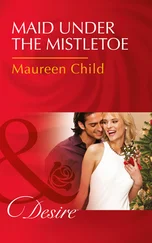“In there,” said Daly.
Murdoch pushed aside the curtains and entered the parlour. The room was small, hot, and dark. The stench was overpowering and there was the heavy drone of sated flies. He waited a moment to let his eyes get accustomed to the gloom. The body of a woman was lying on her back close to the hearth, her head resting on the brass fender.
He turned to the man hovering behind him in the doorway.
“Mr. Daly, I’d thank you to stand outside for the moment.”
“Right, sir.” He happily obeyed.
Murdoch went over to fireplace, negotiating his way through the furniture that crammed the room. It was obvious the woman had been dead for several hours. Flies were crawling over her face, in her eyes and open mouth. Her skin was grey. Gently, he tried to move the chin. It was stiff, the rigor of death firmly established. He called to the constable, who had stayed in the hall.
“Crabtree, come in here, would you?”
The constable entered, grimacing as the odour hit his nose. Death had loosened the woman’s bowels.
“Help me turn her.”
Together they rolled the rigid body on its side. The post mortem staining in both of her hands and fingers was clearly visible. Black felt slippers were half-on, half-off her feet and in the bare heels was the same purple coloration. She had died in the position they found her. She was wearing a grey flannel dressing robe and an old-fashioned white mobcap. A few strands of hair of an unnatural auburn tint had escaped and draggled about her face, looking like rivulets of bloody tears.
“Hold her up for a minute, will you, Crabtree?”
Near the base of the skull, the cap was marked with a rust-coloured stain. Gingerly, Murdoch lifted up the edge. The hair was matted underneath with what he assumed was blood.
“Hard bash to the noggin by the look of it.”
Crabtree grunted. “Seems that way, sir.”
Murdoch looked at him. “Don’t tell me you’re having trouble with this bit of weight? You’re our Samson.”
“It’s not the weight, sir, it’s the smell.”
“Put her back then.”
Crabtree started to lower the body to the ground but as he did so, Murdoch felt something in the right pocket of the woman’s robe.
“Wait a minute.”
He pulled out a plain envelope, unmarked and unsealed. He opened the flap and looked inside. He whistled. Stuffed in the envelope were several banknotes. Ten fifty-dollar bills to be exact.
“That’s a nice bit of dosh. Wonder where she got it?”
“From the look of her, sir, that money would have to be a lifetime’s earnings.”
Murdoch tucked the money into his inner pocket out of harm’s way. He’d find out who had the right to it later.
“All right to put her down now, sir?”
“Fine.”
“Can I open the windows?”
“Break them if you have to before we choke.”
Murdoch gazed down at the corpse, to which the flies had returned. The front placket of the nightgown was splotched with brownish stains and similar smudges were on her chin and neck. Even with all the other odours it was easy to detect the smell of beer. There was an overturned jug close beside her on the left. He picked it up and sniffed at the dregs, then he sat back on his heels and looked around. The parlour was the same size as his sitting room but contained easily twice as much furniture. The mantelpiece in front of him was black mahogany and draped with a purple satin cloth. The fender, the unwitting perpetrator of her death, was solid brass. No fire had been laid. The coating of dust was like a second skin on every surface. An oaken sideboard was against the far wall, and taking up most of the space beneath the window where Crabtree was currently breathing in fresh air was a massive rolltop desk of burled walnut. Very nobby. To the right of the door was a Turkish couch of crimson velour, partly covered with a sateen comforter. A pillow lay on the floor. He assumed this room had served as Mrs. Shaw’s bedchamber. And dining room by the look of it. Dotted about the room were several used plates and dishes. One such was sitting on a nearby Morris chair and it was caked with a lemony residue that the flies were enjoying. Looked like pudding.
“Shall I send somebody for the coroner now, sir?”
“Yes, we’d better do that before she corrupts on the spot. Make sure none of those men come in until they’re sworn.”
The constable wrinkled his nose.
“Disgusting piece, isn’t she?”
Murdoch had to agree. One can’t really help loose jowls or bad teeth if she hadn’t the money to fix them. Nevertheless when Crabtree had left, Murdoch made the sign of the cross over the body and said a brief prayer for the woman’s immortal soul.
By two o’clock, thirteen men had been sworn for the coroner’s jury and they were jammed into the tiny room. Their first job was to view the body and even with the door and windows open, the heat and smell were overpowering. Arthur Johnson was the coroner and he was showing signs of impatience. Legally the jury had to be made up of a minimum of “twelve just men and true,” but as they received no remuneration most men were reluctant to serve. It meant that if they were working they would lose pay. On his first sortie into the neighbourhood Crabtree hadn’t been able to find more than ten willing to be sworn. Finally he peremptorily grabbed two passersby, two brothers who happened to be walking down River Street on their way to the market. They weren’t pleased but they had no choice.
“Pay attention now,” said Johnson. “The sooner I get done, the sooner you can all breathe fresh air again. I’m going to point out some things to you.”
The men, who had been grumbling among themselves, quieted down. Murdoch had positioned himself slightly behind the coroner’s back so he could see properly. It was apparent the man next to him had recently been tucking into a meal of boiled beef and cabbage. With onions on the side. Murdoch turned around. He could see the top of Crabtree’s helmet by the door. He hoped the man was all right. He still looked rather nauseous. Not that Murdoch blamed him. He, himself, was trying to breathe as shallowly as he could.
“Right now, listen carefully.” The coroner bent over the corpse, pointing for emphasis as he talked. “The woman has been dead several hours. The rigidity of death which we call rigor mortis has set in completely. Notice that purple-coloured marking on her hands and feet. There, look! if you can’t see move forward. You ones in front, crouch down so the others can see.”
Three or four men did so.
One of the men muttered something about this being closer than he ever got to his old lady, but the responding titters were quickly squashed by Johnson’s frown.
“The staining is termed lividity. It’s where it should be. The blood settles in the lowest extremities and this tells us she hasn’t been shifted from the position where she died. I can’t turn the head, she’s still too stiff. That’ll start releasing fairly soon.” He grinned at the men. “It’s after that the fun and games begin. The skin’ll turn black, maggots are everywhere, and before long not even her own child would know her.”
The jurors with the more vivid imaginations shifted uneasily.
“If we roll her on her side, like so, you can see some blood on the back of her cap.” He waited while they peered at the mark. “She stinks of ale. There are stains on her robe and there was a jug right next to her. I’ve put it on that table. There were beer dregs in it. As you can see she’s lying on top of the fender. There’s a tiny mark of blood there. No, it’s all right, you don’t have to all move. You can take my word for it. There are no obvious signs of violence on the body, the room is not disturbed. It’s a disgusting mess but that’s not the same thing.”
Читать дальше











